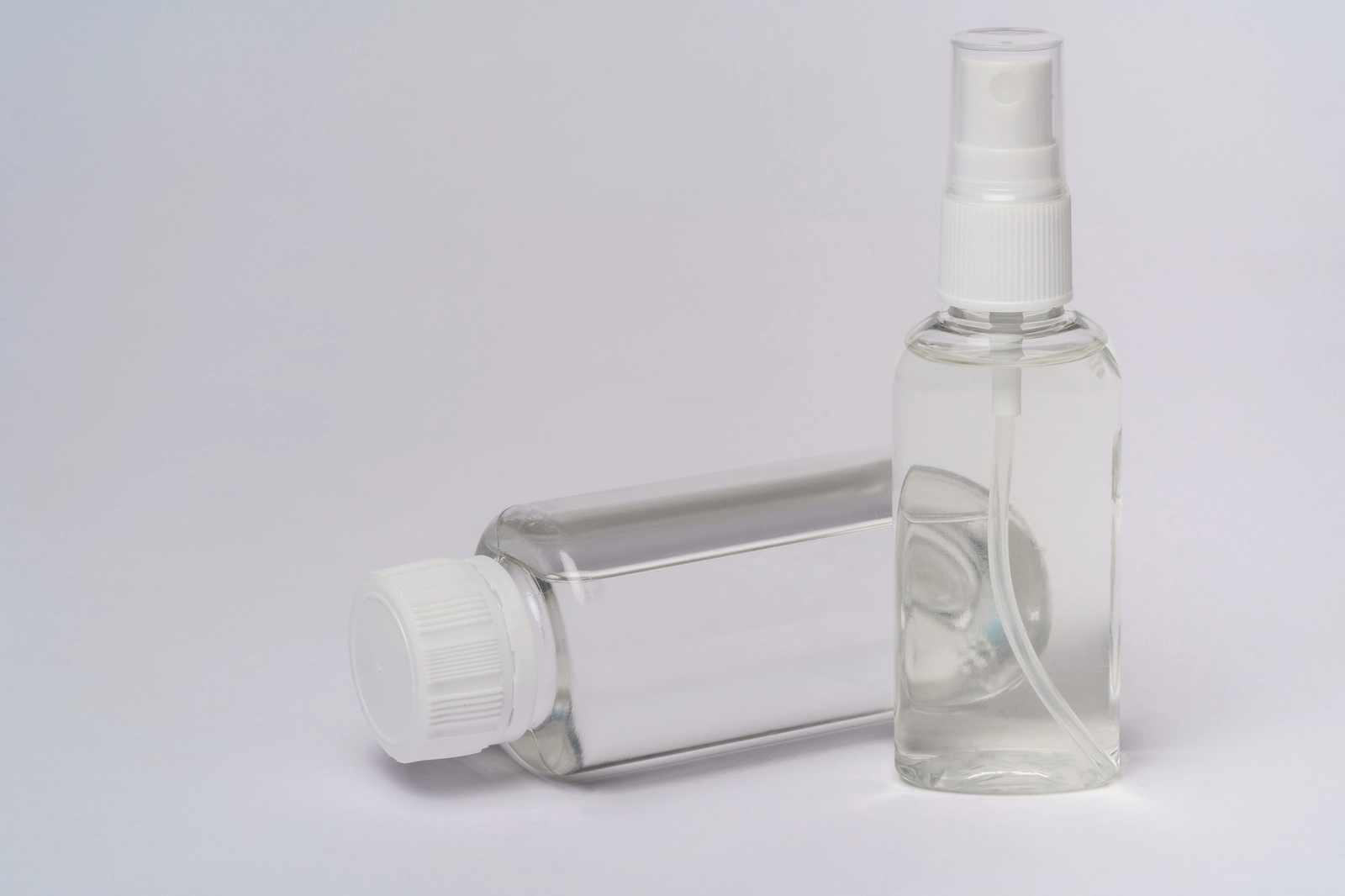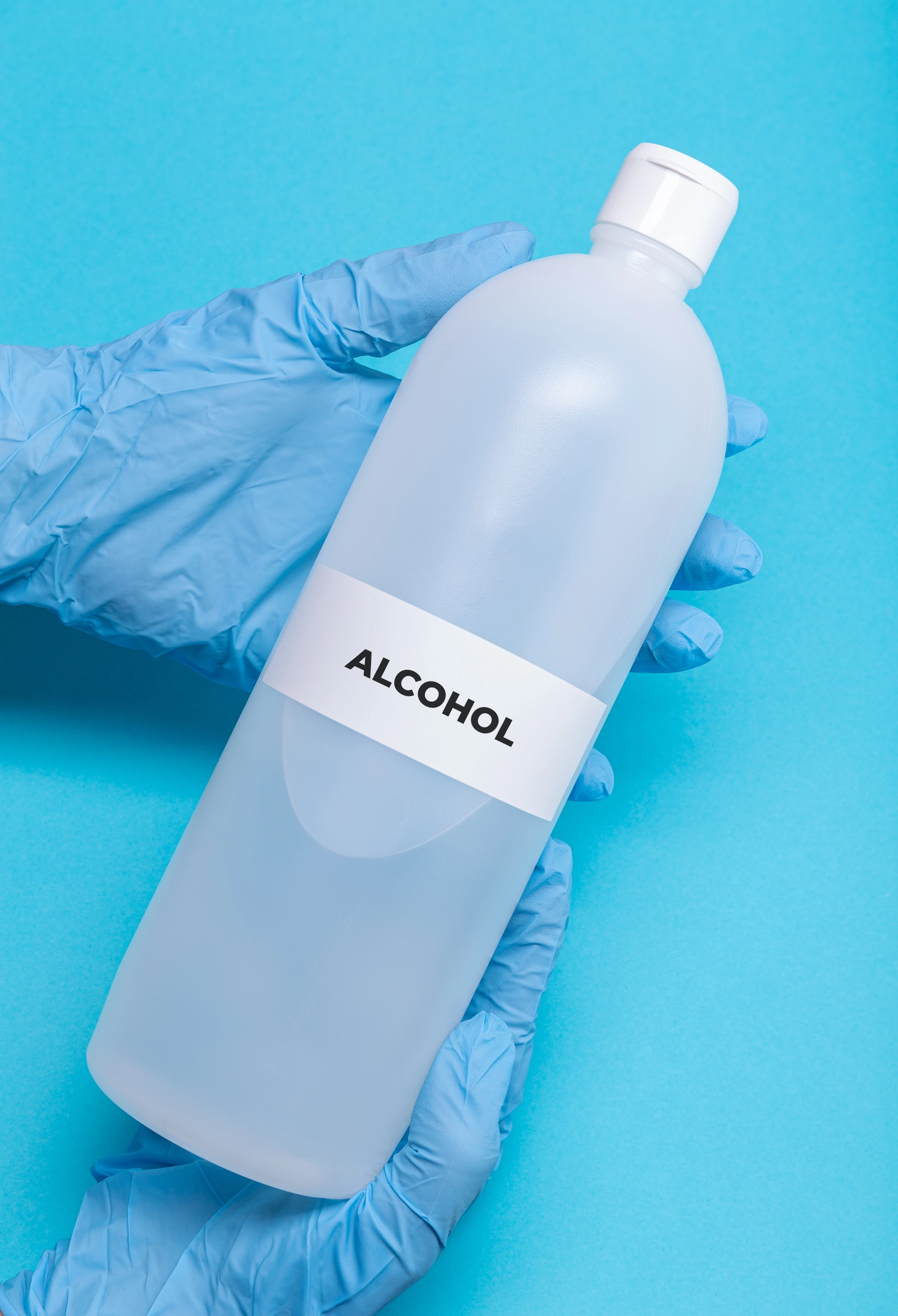Can You Drink Rubbing Alcohol? Poisoning Risks and Health Hazards

- Rubbing alcohol, or isopropyl alcohol, is a common household product used to disinfect wounds or electronics.
- Rubbing alcohol differs from ethanol or ethyl alcohol, the type of alcohol found in alcoholic beverages.
- Drinking rubbing alcohol to get intoxicated can have dangerous consequences like stomach bleeding, coma, or death.
Rubbing alcohol, or isopropyl alcohol, is found in a variety of household products, including hand sanitizers and wound disinfectants. Though generally safe, rubbing alcohol can be toxic if swallowed, inhaled, or absorbed through the skin.
Because it’s a cheap and widely available substance, some people may drink isopropyl alcohol as an ethanol (drinking alcohol) substitute to become intoxicated. Doing so is extremely dangerous and can cause adverse effects like internal bleeding, shock, coma, or death.
What Is Rubbing Alcohol?
“Rubbing alcohol” is a term that describes a variety of alcohol-containing products that aren’t intended for ingestion. The most common form of rubbing alcohol is 70% isopropyl alcohol, or isopropanol, combined with 30% water.
Rubbing alcohol is colorless and smells like ethanol, the type of alcohol that’s used in alcoholic beverages. It’s used as a disinfectant, such as alcohol swabs for first aid. Higher concentrations of isopropyl alcohol are available, but they’re not used as often in households.
Isopropyl alcohol is widely available at grocery stores and pharmacies. It’s effective for killing bacteria, disinfecting the skin, and cleaning minor cuts and scrapes. Because it evaporates quickly, isopropyl alcohol may also clean and disinfect surfaces like smartphones or computer keyboards.
In addition to straight isopropyl alcohol, it’s a main ingredient in certain cosmetics, lotions, cleaners, disinfectants, hand sanitizers, antifreeze, and aftershave.
Why Do People Drink Rubbing Alcohol?
Rubbing alcohol may be consumed as an alternative to ethanol. It’s cheap and widely available compared to ethanol, the intoxicating substance produced by sugar fermentation and distillation in alcoholic beverages.
For example, people who are recovering from alcohol addiction may try rubbing alcohol to become more intoxicated. Young people may not have access to ethanol, but rubbing alcohol is found in most households, and that may seem like a cheap, easy way to get drunk. There are also cases of accidental ingestion with young children.
Dangers of Drinking Rubbing Alcohol
Like other toxic alcohols, rubbing alcohol is absorbed quickly – with nearly 80% being absorbed within 30 minutes of ingestion.[1] This is metabolized by the liver, which breaks it down into acetone. The blood levels of isopropanol can peak between 30 minutes and 3 hours of ingestion.[2]
If you drink rubbing alcohol, you may experience abdominal pain, nausea, vomiting blood, bleeding in the stomach and intestines, diarrhea, or bladder rupture.[3] Isopropanol also depresses the central nervous system, possibly causing dizziness, headaches, intoxication, and coma.[4]
What to Do If Someone Ingested Rubbing Alcohol
Rubbing alcohol is not a safe alternative to liquor, wine, or beer. It’s never intended for consumption, only as a topical disinfectant.
If you suspect someone has consumed rubbing alcohol, call 911 immediately. You should also call the American Association of Poison Control to receive expert guidance from toxicology experts.
The treatment for isopropanol poisoning can vary, but it may include supportive care like intubation, pumping the stomach, dialysis for kidney protection, and IV fluids. The success of treatment depends on individual factors and how much alcohol was ingested.
Can You Die from Drinking Rubbing Alcohol?
Isopropyl alcohol is absorbed quickly, leading to rapid effects. If you drink it, you will not only get intoxicated quickly, but you can black out and possibly die. The approximate lethal dose is 2 to 4 mL/kg, which is roughly 8 ounces for the average adult.[5] To put that in perspective, an average shot of ethanol is 1.5 ounces, and a soda can is about 12 ounces.
Alcohol Abuse and Addiction
Though there are cases of accidental isopropanol poisoning, some cases come from teenagers looking to get drunk without access to ethanol or people struggling with alcohol addiction who turn to rubbing alcohol.
Isopropyl alcohol and ethanol are quite different, however. Rubbing alcohol is not intended as a substitute for any type of alcoholic beverage – or for human consumption at all. If you or a loved one is using rubbing alcohol to try to become intoxicated, it may be a sign of serious alcohol abuse or addiction.
The clinical term for alcohol addiction is alcohol use disorder, which has the following criteria in the Diagnostic and Statistical Manual of Mental Disorders:[6]
- Consuming alcohol in larger quantities or for a longer duration than initially planned
- Repeated attempts to reduce or control alcohol consumption without success
- Spending significant time obtaining, using, or recovering from the effects of alcohol
- Experiencing intense cravings or a strong urge to consume alcohol
- Repeated alcohol use that leads to failure in meeting major responsibilities at work, school, or home
- Continuing alcohol use despite ongoing social or interpersonal problems caused or worsened by drinking
- Reducing or giving up important social, work, or recreational activities due to alcohol use
- Frequently using alcohol in situations where it poses a physical danger
- Persisting in alcohol use despite awareness of a physical or psychological issue likely caused or worsened by drinking
Treating Alcohol Addiction
Alcohol addiction can be extremely difficult to overcome. It’s widely available, legal, socially acceptable, and generally inexpensive. Alcohol also builds tolerance quickly, and eventually, the body becomes used to the presence of alcohol and needs it to function (physical dependence).
Once dependence occurs, stopping alcohol use suddenly can lead to intense and potentially life-threatening withdrawal symptoms like seizures and delirium tremens (DTs).[7] Because of the risks of withdrawal, medical detox is often recommended to monitor your health, provide medications for your symptoms, and keep you as safe and comfortable as possible while your body adjusts to the absence of alcohol.
Medical detox is an important foundation for addiction recovery, but it’s not a complete treatment on its own. After detox, it’s crucial to enter a comprehensive addiction treatment program to address the psychological and behavioral aspects of addiction. Whether you prefer an inpatient or outpatient program, therapies like individual therapy, group counseling, peer support groups, and behavioral therapies can help you identify the patterns and behaviors that contributed to your addiction and find a healthier way to cope.
Seek Help for Alcohol Addiction
Drinking rubbing alcohol is extremely dangerous. You should never ingest any amount of rubbing alcohol, especially as a substitute for an alcoholic beverage, as you can experience potentially fatal results. If you or a loved one is struggling with alcohol addiction, help is available to give you the support you need to achieve sobriety.
Frequently Asked Questions About Rubbing Alcohol

